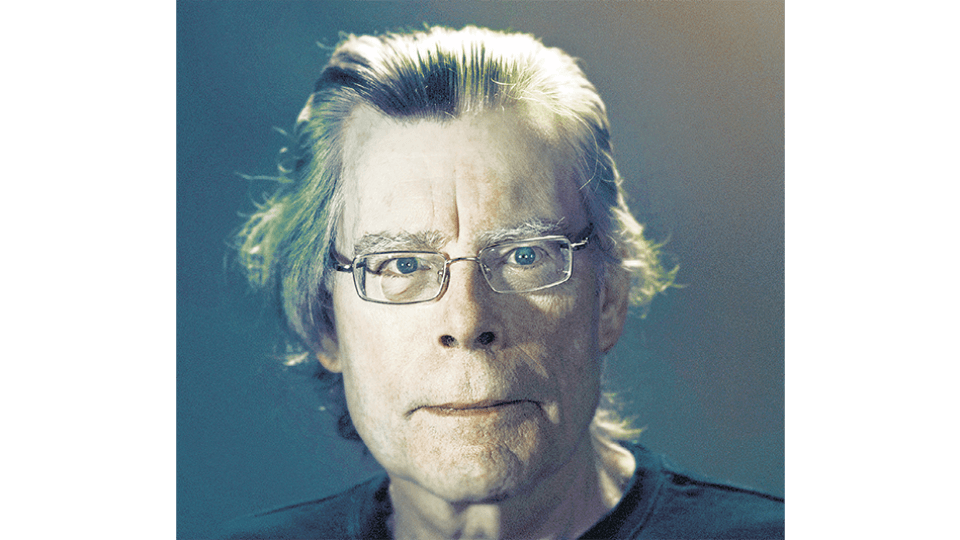Bendu Hua

He is the filmmaker of All That You Love Will Be Carried Away film.
SKSM: Tell us about yourself, who is Bendu Hua and what do you do or have you done?
Bendu Hua: As an ordinary kid with no special talents, I grew up in rural China, my love for films has become my one passion and obsession. I studied advertising at a pretty average university, after graduation, I followed my passion, thanks to an Internet friend’s recommendation, I ended up relocating to Beijing, attended a short-term independent filmmaking course, and started to organize film screening events with friends. Eventually, we founded Pumpkin Fantasy Film Festival. I taught myself editing and everything post-production, it soon became how I make a living; meanwhile I started to participate in some horror shorts with friends. In 2011, I made my third short film, All That You Love Will Be Carried Away; the following year, I worked as assistant director on Siyi Pan’s The Night of the Full Moon; in 2014, I teamed up with a friend to co-produce a web series called All About Horror Movies. Over the years, I helped out in the production of many friends’ film projects, taking on whatever role needed to be filled on set. It wasn’t until 2017 that I finished my first feature-length film The Return (which is still waiting for the right opportunity to be released). Right now, I’m running the film festival and writing my next film.
SKSM: When was the point that you thought I wanted to make movies?
Bendu Hua: Back in the 80s and 90s, there was a time outdoor VHS/VCD movie screening was popular. I’ve been into films for as long as I can remember, I honestly can’t recall when was the first time I started thinking about making my own film, it probably just kind of came to me naturally. After my graduation, I bought my first digital video camera, and made my first short film Sleepwalker with my cousin. Under the influence of some like-minded friends, I took a filmmaking course in Beijing, and made my second short film Room for Rent. All That You Love Will Be Carried Away is the third short film I made.
SKSM: When did you make All That You Love Will Be Carried Away? Can you tell me a little about the production? How much did it cost? How long did it take to film it?
Bendu Hua: In about 2011, it cost just about 4,000 in Chinese Yuan ($550 USD), mostly spent on props, costumes and a celebration meal we shared at the end. It was made possible with the help from my friends and classmates. We finished filming in under two days.
SKSM: Why did you choose All That You Love Will Be Carried Away and not, for example, another story?
Bendu Hua: At the time, I was reading a Chinese edition of Stephen King’s short story collection Everything’s Eventual, I really loved it. All That You Love Will Be Carried Away was one of the stories. I picked this story to make an adaptation because it has a fairly simple setting and very few characters, which was perfect for a low-budget project. Also what truly moved me was how the ending engages the reader, inviting them to care about the character.
SKSM: Why do you think people like this story so much?
Bendu Hua: I feel like the protagonist of this story could represent most ordinary people, someone who, at some point in life, reaches a crossroads and is about to make a critical decision. What really makes the story work is how the motel graffiti along the way captures countless fleeting thoughts and emotions from strangers–different people at specific moments in time and in life. The fact that the protagonist notices them, documents them, he’s someone that sees others. And that makes him someone the reader is invited to see and care about. That’s why I felt the story’s ending, with its gentle hope left for him, was so moving.
SKSM: How do you feel about talking about your film adaptation after so many years?
Bendu Hua: It’s a bit surreal, just like receiving your email. And apparently, it sparked a sudden urge to try adapting another one of his stories.
SKSM: As far as we know, the only film adaptation from China was based on a story by Stephen King. What do you think about that?
Bendu Hua: First of all, I’m honestly very honored. I think due to cultural differences, a lot of people would assume it’s very challenging to shoot an American story in China, especially when it comes to localization. It’s a bit like when Hollywood tries to make some “Chinese” films, the Chinese audience would often feel strange or off, haha. Back then, when I made this short film, it was mostly out of passion, and also as a kind of filmmaking practice for myself.
SKSM: Can you tell us something about the filming process? What is easy or difficult? What did you have in mind?
Bendu Hua: The most difficult part for me was finding the right locations and props. I needed a cornfield (mainly because I wanted to reference Children of the Corn and include some subtle nods to other Stephen King works.) I also needed a motel with a long hallway, but most places in China just didn’t have the right layout. Prop-wise, getting a fake prop gun was nearly impossible in China because of regulations, I didn’t have access to any professional rental resources. And then there was the graffiti, the protagonist in the story documents assorted graffiti from different places, but in China, that kind of graffiti is almost nonexistent or very different in nature.

SKSM: Was there any funny or special moment when the movie was made that you would like to tell me about?
Bendu Hua: For the graffiti shots, I got creative. I crowdsourced that online. I asked people on the Internet to write quirky or meaningful messages on their own bathroom walls and send me photos. The zombie walk sequence at the end was filmed right after one of our horror screening events, all the actors were our audience of the screening, it was filmed in a corner by the venue. And as a little homage, I played a clip on the motel’s TV, it was the one where Stephen King makes a cameo in the ballroom scene in The Shining from the 1997 TV version.
SKSM: What do you think about the existence of a short film (Dollar Baby-) community surrounding Stephen King? Were you aware of this before?
Bendu Hua: I had no idea at the time of making this short film. My English is not the best though, even if I did know, it was probably too challenging for me to retrieve further information or get involved and communicate.
SKSM: Production is over. Are there thoughts that make you think now, we could have done this differently?
Bendu Hua: Now that I think about it, the demon I wrote in to tempt the main character, and the ghost of the woman who died by suicide, who was meant to guide him, both of them probably could use a little more work in terms of visuals and presentation. (Right now it’s kind of like… who are they? What are they even doing here? Hahaha!)
SKSM: Were any movie fragments cut out that you now miss?
Bendu Hua: Not really, I did not film a whole lot of footage, so everything was pretty much used in the film.
SKSM: What are you thinking of the end result of the film?
Bendu Hua: At the time I thought it was okay, looking at it now, many things weren’t quite fully developed and could use a lot more work.
SKSM: What was your main goal you wanted to achieve about this film?
Bendu Hua: The main goal was to learn making short films and gain some hands-on experience. And honestly, none of the music I used was licensed, lol. It was meant to be a practice project.
SKSM: Can you describe the feeling when the film was finished and how the film was received after viewing?
Bendu Hua: Post production was entirely done by myself. When I finished, I realized how difficult it actually was, there were many things I couldn’t manage to pull off. Watching it as a whole, I thought it was okay. The narrative wasn’t totally clear in the adaptation, but I thought the overall vibe was there.
SKSM: What “good or bad” reviews have you received on your film?
Bendu Hua: We screened the film at one of our horror screening events, some people liked the vibe and atmosphere, most audience had no idea what was going on, but it didn’t bother us, we were just a bunch of friends hanging out. We had a little afterparty with drinks and BBQ, had a blast talking about horror films. Good times, haha.
SKSM: Do you still keep in touch with the cast and/-or crew, or has that faded over the years?
Bendu Hua: Yes, almost every one of them. The protagonist was my classmate, he participated in every project I’ve done since. The producer Siyi Pan, too, has remained my go-to for everything else I made. She’s also a partner in organizing the screening events and later became my co-founder of the Pumpkin Fantasy Film Festival.
SKSM: In an earlier email you mentioned that you were making your own film adaptations of Stephen King stories at the time. Does this mean that you have filmed more stories besides All That You Love…?
Bendu Hua: Not yet, but I’d like to make a Stephen King story again once I figure out a game plan.
SKSM: If you could pick -at least- one Stephen King story to shoot, which one would it be and why?
Bendu Hua: I really want to make an adaptation of L. T.’s Theory of Pets, I’m quite fond of this story, but working with animals is not a practical option for me at the moment.
SKSM: Are you a Stephen King fan? If so, which are your favorite works and adaptations?
Bendu Hua: I’m a big fan of King, though I have to admit, as a slow reader, I haven’t finished all of his books, but I’ve seen almost every single film and TV adaptation of his work. Among his novels, I love Salem’s Lot, IT, Pet Sematary, and Blaze. For his collections, I really like the novellas in Different Seasons and the short stories in Everything’s Eventual.
As for adaptations, there are too many I love, but some favorites include Carrie (1976), Stand by Me (1986), The Shawshank Redemption (1994), The Green Mile (1999), Dolores Claiborne (1995), IT (1990), The Shining (both the 1980 and 1997 versions), Hearts in Atlantis (2001), and 1922 (2017)… the list goes on and on.
SKSM: You admit to being a big fan of Stephen King. What about the rest of China, is he as well known there as in other parts of the world?
Bendu Hua: Stephen King’s recognition in China is somewhere in the middle, not super mainstream and well-known, but he’s not unknown either. A lot more of his work has been published here in recent years, with newer versions and translations coming out. Still, he’s mostly known within a smaller, devoted fan community… but hey, that’s still a lot of people, considering how huge China’s population is, haha.
SKSM: How did you get involved with Stephen King?
Bendu Hua: Around 2002, I bought my first Stephen King book in college, it was The Stand. The first film adaptation I saw knowing it was based on his work was The Shawshank Redemption (1994). But funny enough, I actually watched his work way earlier without knowing, I was about 10 when I saw Creepshow 2 (1987), the second story The Raft seriously traumatized me as a kid.
SKSM: What do you think of Stephen King as a writer?
Bendu Hua: I think Stephen King is truly a great writer, he has a talent in masterfully and precisely capturing everyday life details and use them to create a touch of fear, while also exploring emotions that resonate across all of humanity.
SKSM: What are you working on nowadays?
Bendu Hua: I’m currently in the early stage of writing a feature-length Lovecraftian-ish screenplay set in a coastal small town. (Yes, yes, I love Lovecraft too, I know, how original, haha.)

SKSM: What is in the top 5 on your bucket list? (Everything is possible and nothing is too strange)
Bendu Hua:
- Make another feature film
- Attend a major international fantasy film festival, an A-lister or B-lister (I haven’t had the chance to travel outside of China yet, sadly)
- Own a signed Stephen King book
- Spend a year living on a quiet island, fishing and swimming during my free time
- To have one of my films officially screened in a movie theater
SKSM: What is one thing people would be surprised to know about you?
Bendu Hua: Even though I regularly watch horror movies and read horror fiction, I’m actually very easily scared. It usually surprises people, but King fans definitely know that feeling all too well.
SKSM: Where do you see yourself in 5 years?
Bendu Hua: Aside from getting older… or, well, being dead, I don’t see much else really gonna change, haha.
SKSM: Thank you for taking the time for the interview. Would you like to say something to those reading the interview?
Bendu Hua: You are very welcome, I’m genuinely honored to be a part of this interview. You are always welcome to come visit China, if anyone is interested, please keep an eye out for our Pumpkin Fantasy Film Festival and my future films.
SKSM: Do you like to add anything else?
Bendu Hua: Not really, your questions covered everything so well, haha.
Thank you!
















